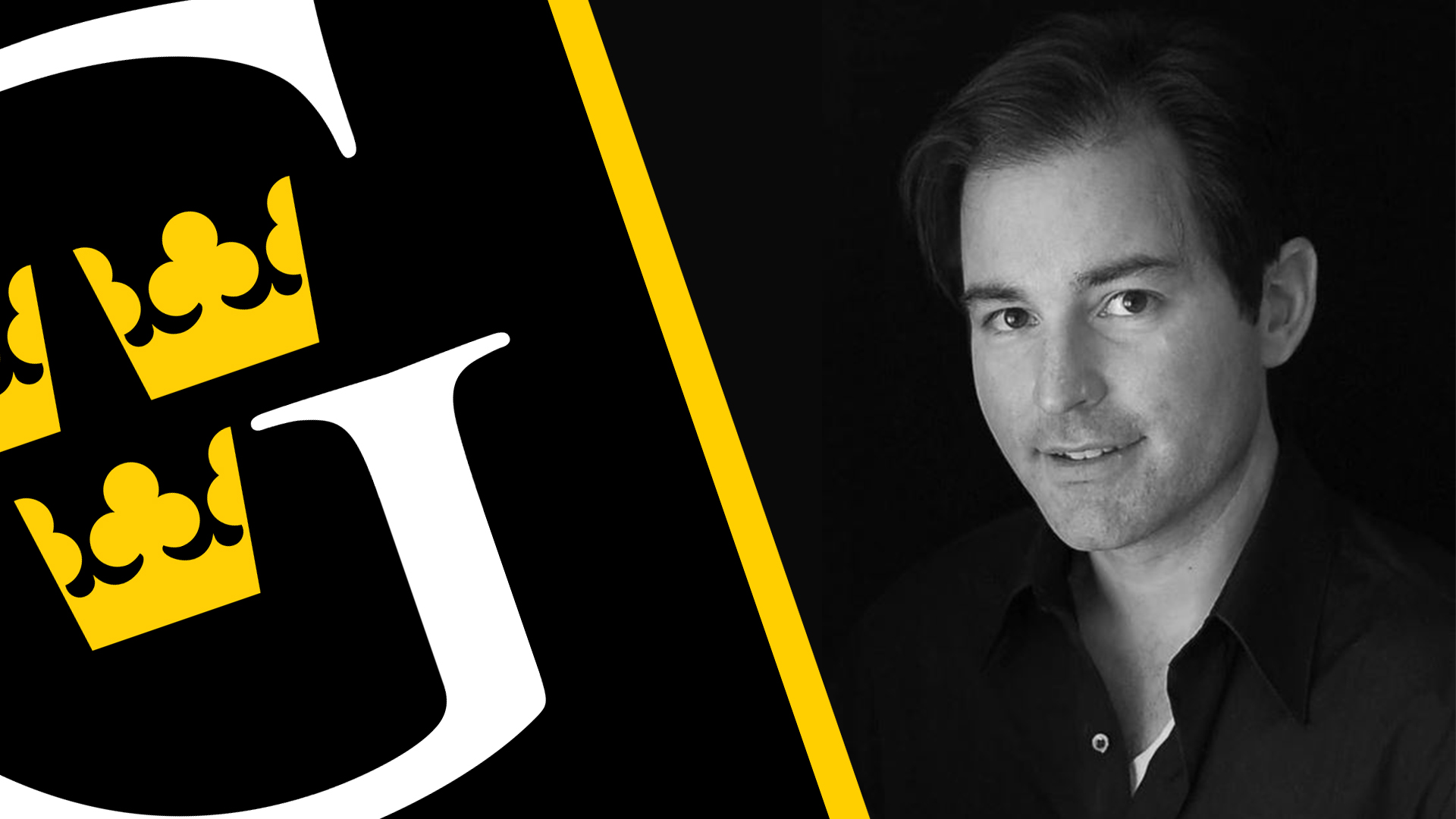Religion professor Dr. Casey Elledge was named the winner of the 2019 Faculty Scholarly Accomplishment Award at Gustavus Adolphus College’s Honors Day Convocation on Saturday, May 4.
“This is an honor I will always remember. It is a blessing to receive this award together with my colleagues in the religion department—and with the many wonderful professors who have held this award in the past, as well as those who will continue to hold it in the future,” Elledge said. “When receiving awards like this, I think especially of the people who have believed in me: from my home church in Louisiana, to Centenary College, to Princeton, to Hebrew University, to my wife, Beki. My career is a product of all that they have given.”

A scholar of the New Testament who is particularly interested in Jesus and the Gospels, early Judaism, archaeology, and the Dead Sea Scrolls, Elledge has been a prolific writer during his tenure at Gustavus, penning four books and numerous articles, book chapters, and reviews. His most recent book, Resurrection of the Dead in Early Judaism, 200 BCE-CE 200, was nominated for the 2019 Grawemeyer Award in Religion. Published by the exclusive Oxford University Press, the book was reviewed in Religion by Dag Øistein Endsjø as one that “stands out because of its scale and thoroughness, and its overall excellent presentation and discussions” and “deserves to remain a standard volume on this subject for quite some time.”
Elledge’s religion department colleague Dr. Blake Couey is effusive in praise for the work. “Dr. Elledge’s book asks important questions about the nature of divine justice or injustice in relation to early Jewish views of the afterlife,” Couey explained. “Resurrection is one of the central ideas of Christianity and his ability to find innovative approaches to the topic speaks to his creativity as a scholar. This will be a significant book in the field for years to come.”
For Elledge, the study of ancient Christianity is inherently interdisciplinary. “This is a topic that requires knowing as much as we can about the world at the time. It touches on ancient Jewish literature, archeology and history, and what the origins of Christianity mean to people of various religions,” he said. “I try to answer challenging questions about the origins of the Christian faith. The New Testament calls us into a conversation with history and with the Church’s own early story that continues to inform our world today.”
The professor includes Gustavus students in his scholarly work, often reading drafts of book chapters and discussing them—sometimes critically—in class, collaborating with them on articles or reviews, and encouraging their interaction with texts. Due to Elledge’s prominence in his field, he has been able to connect students with opportunities to learn from other leading scholars, including Israeli archeologist Ehud Netzer and Lee McDonald, an expert on the formation of the Biblical Canon.
“Engaging in scholarship increases energy and enthusiasm for one’s teaching,” Elledge said. “If I’m alive as a scholar and a teacher at the same time, the resources I can offer students are greatly expanded.”
He holds a bachelor’s degree in English from Centenary College and a master’s and doctorate from Princeton Seminary. Elledge completed a postdoctoral fellowship at French Biblical and Archeological School of Jerusalem and served as a Fulbright Scholar in Israel. Besides English, his research is conducted in eight languages: Hebrew, Aramaic, Akkadian, Syriac, Greek, Latin, French, German. Another book, this one exploring intertestamental literature—Jewish texts written between the Old and New Testament—is already nearly competed and slated to be published by Oxford University Press.
“Whether it’s at the undergraduate level or beyond, scholarship is a great teacher of life lessons,” Elledge said. “While some intelligence is occasionally useful, the path of scholarship is ultimately about character: the resilience to work patiently through difficult problems, the courage to take risks, the relentlessness to overcome failure—above all, the will to sacrifice, the humility to accept criticism, and respect for all thinkers who walk this pathway.”
First awarded in 1986, the Faculty Scholarly Accomplishment Award was reestablished in 2004 and is now announced during the annual Honors Day Convocation. Award recipients are nominated for this honor by fellow faculty members based on professional accomplishments regarding research activities in private, public, or corporate settings; publication; presentations at scholarly meetings or conferences; and exhibits or performances. This award is the highest accolade a Gustavus faculty member can receive for distinguished scholarly achievements.

Leave a Reply